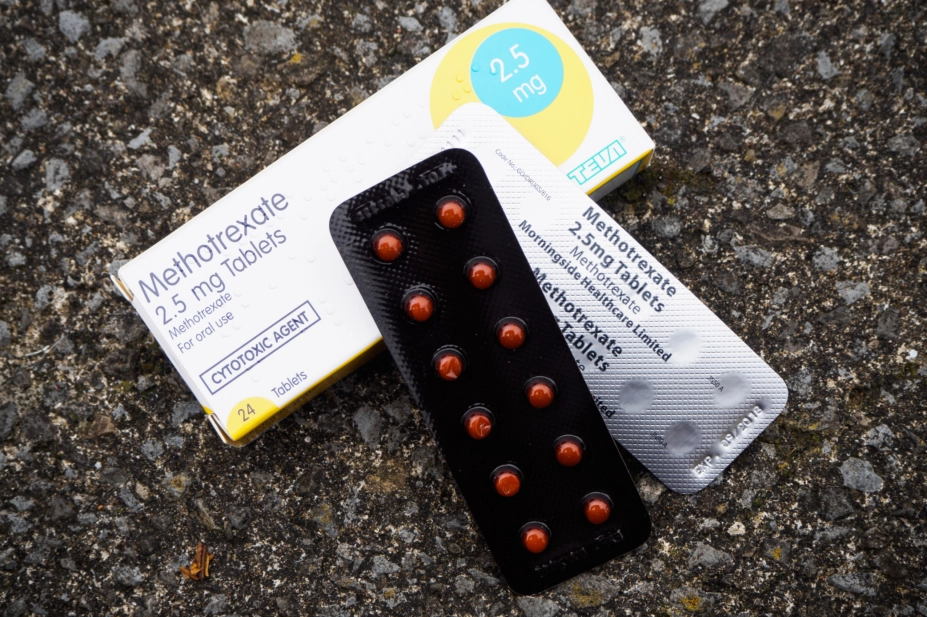
Shutterstock.com
Unsafe methotrexate prescribing has gradually reduced, but is still common, with substantial variation between general practices in England, a study in the British Journal of General
Practice has found.
Methotrexate is a folic acid antagonist, commonly prescribed for conditions such as rheumatoid arthritis, Crohn’s disease and severe psoriasis. In the UK it is recommended that, when prescribing oral methotrexate tablets, only 2.5mg tablets should be used to minimise the risk of accidental overdose.
However, a retrospective cohort study has found that breaches of this guidance are common and vary widely between general practices in England.
The researchers analysed prescribing data from all English NHS general practices and clinical commissioning groups between August 2010 and April 2018. Harm associated with methotrexate was assessed via freedom of information requests to the Office for National Statistics and NHS Resolution.
The researchers found that prescribing of 10mg tablets of methotrexate represented 3.4% of all methotrexate tablet prescribing in April 2018, a reduction from 9.1% in August 2010.
In April 2018, they observed that most general practices prescribed no 10mg methotrexate tablets to patients; however, 697 general practices prescribed ≥14.3% of all methotrexate as 10mg tablets, in breach of national guidance.
In addition, 66 practices gave ≥52.4% of all prescribed methotrexate in the form of 10mg tablets.
Co-prescribing of methotrexate 2.5mg and 10mg tablets to individual patients was also found. In total, 1,689 of 7,349 general practices (23.0%) co-prescribed both 2.5mg and 10mg tablets of methotrexate to individual patients, despite recommendations in the British National Formulary
that only one strength of methotrexate tablet (usually 2.5 mg) should be prescribed.
Overall, 21 deaths caused by methotrexate poisoning were reported between 1993 and 2017 in England and Wales.
The study authors recommended that the NHS should invest in better audit and targeted dissemination of safety information and identified named individuals and roles with responsibility for implementing the recommendations of safety alerts.
Ben Goldacre, director of the DataLab in the Nuffield Department of Primary Care Health Sciences at the University of Oxford and co-lead on the study, said his team had provided an open access audit tool that allows any clinician to easily review their own practice’s compliance.
Anthony Cox, reader in clinical pharmacy and drug safety at the University of Birmingham, told The Pharmaceutical Journal that a patient death more than 20 years ago, related to poor prescribing of methotrexate, led to one of the first “really good” examples of a multidisciplinary analysis of harms caused by a medicine.
“Since then, although the prescribing of methotrexate is much improved, with guidelines and improved professional awareness of the risks of accidental daily dosing for example, it is concerning that this study shows that the prescribing of 10mg methotrexate tablets is still unacceptably common in some GP practices.
“This study also shows the power of leveraging routine data for improving patient safety, which can also be carried locally by primary care pharmacists to review their organisation’s use of 10mg methotrexate.”
In 2019, as part of new measures to avoid ongoing dosing errors involving the drug, the European Medicines Agency’s Pharmacovigilance Risk Assessment Committee recommended that only doctors with expertise in using methotrexate-containing medicines should be able to prescribe it.


